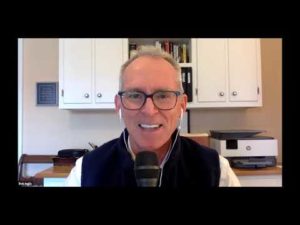A Conservative Approach to Solving Climate Change
The deepening partisan divide in the United States has been harmful in many ways. One of the most glaring issues where it has hurt us all concerns the public support of climate solutions. In a recent webinar, former South Carolina Congressman Bob Inglis laid out some great solutions that conservatives can support.
Our communities’ partner in Southwest Florida, Growing Climate Solutions, has a Climate Compass speaker series that examines issues around climate change for the Florida community. Bob Inglis was their first speaker for a Feb 24 webcast, “A Conservative Approach to Solving Climate Change.” In this hour-long presentation, including answers to some questions from the Zoom audience, Inglis laid out the economic case for a carbon fee. He is a good storyteller, and he explained the concept of “unrecognized negative externalities” in terms that were easy to understand for those who are not economists. Basically, he explained, companies that emit pollution into our air and water without having to pay to clean it up are creating harm and a cost burden for others. If these toxins make the air and water not fit for humans, then government has to clean them up, thus transferring the costs of the company’s operations to taxpayers who did not create the pollution. Inglis pointed out that this is not fair.

Inglis went on to explain that many of those who suffer from this pollution, and who have to deal with the harmful toxic nature of contaminated air, water and soil, are often poor communities of color. This leads them to suffer from a higher incidence of chronic illness, which prevents them from holding down good jobs, and accelerates a cycle of poverty. Inglis drew upon the strong morals of his Christian, evangelical faith, saying it isn’t right to “dump on our neighbors” and saddle them with struggling health outcomes. He also pointed out that we are called upon to care for our neighbors, and to alleviate poverty — which can be a direct result of harmful climate impacts, such as extreme weather events that flood people out of their homes and their livelihoods.
His presentation is worth a listen for those who seek to bridge the partisan divide and to find ways to de-politicize the climate conversation. Inglis also gave some sound communication advice, much like our ecoAmerica guidance in our Let’s Talk Climate resource guides. He re-iterated our advice to find ways to connect climate impacts to everyday life, and then focus on the benefits of taking action – healthier living, fresher food, higher quality of life, and even better return on your investments.
For more information on his work to bring more conservatives along on climate solutions and action, you can visit his website at RepublicEn.org. We know that the challenge is big enough that it will take everyone – progressives and conservatives alike – supporting clean energy and positive solutions to tackle the climate crisis.
And if you want to hear more about bi-partisan progress on climate action, tune in to our Let’s Talk Climate on March 11 to hear the success story of Utah climate engagement. Through strategic cross-sector leadership, Utah moved from being a state where you could not even say “climate change” to one where leaders on both sides of the aisle signed a Climate and Clean Air Compact in 2020, committing 23 local communities to 100% clean energy by 2030. Hear the amazing story of their success and register here today!
